APM Programme management SIG conference: speakers and topics
 Keynote: Tom Taylor, vice President APM
Keynote: Tom Taylor, vice President APM
Tom Taylor is a past President and previous chairman of APM, a joint founder of Buro Four, principal of Dashdot and an experienced project manager judiciously monitoring PM fashions and trends.
Session: “Looking! And Thinking! Fashions and trends in the management of programmes"
Is it simply about concentrating on applying essential, proven PM basics every time – promptly, carefully, sensibly, fully, properly?
Or is about being readily observant of new, novel, fresh ideas, systems and outlooks – and cannily being selective in their adoption, application or avoidance - this time or next time?
Let us explore a few real, current options; and demonstrate your possible reactions and responses – in practice.
Benedict Pinches, Managing Director, Oxford Major Programmes
 Benedict is Managing Director and Founder of Oxford Major Programmes; a company dedicated to revolutionising the management of major projects and programmes. His team develop software that combines elements of social media, benefits tracking and an holistic approach to status reporting in order to produce innovative visualisations to aid the decision-making of Programme Directors and Sponsors. He is involved in a number of research projects with world leading academics from Oxford University.
Benedict is Managing Director and Founder of Oxford Major Programmes; a company dedicated to revolutionising the management of major projects and programmes. His team develop software that combines elements of social media, benefits tracking and an holistic approach to status reporting in order to produce innovative visualisations to aid the decision-making of Programme Directors and Sponsors. He is involved in a number of research projects with world leading academics from Oxford University.
A graduate from the first cohort of the MSc degree in Major Programme Management at Saïd Business School, Ben is also active with voluntary work focused on bridging the worlds of project management practice and academia. Prior to setting up his own company in 2011, he was a programme management contractor for more than fifteen years and led programmes in the public and private sector both in the UK and overseas. As a programme manager, he became known for his entrepreneurial approach to project management, becoming runner up in the innovative project of year category for the BCS in 2009 with an Agile IT project.
Session: "Dealers in hope: programme leaders in the 21st century"
Many books have been written and courses devised around the nature of ‘leadership’, and it is frequently cited as one of the most important contributing factors in high performing projects. At this event we will consider the paradox that project leadership is both simple practice and complicated art form. We will explore the importance of clear articulation of the Vision, and the strong links between this, stakeholder identification and benefits management. We may also talk about Blues music….
Russell Goodenough, Client Managing Director, Transport Sector: Fujitsu UK
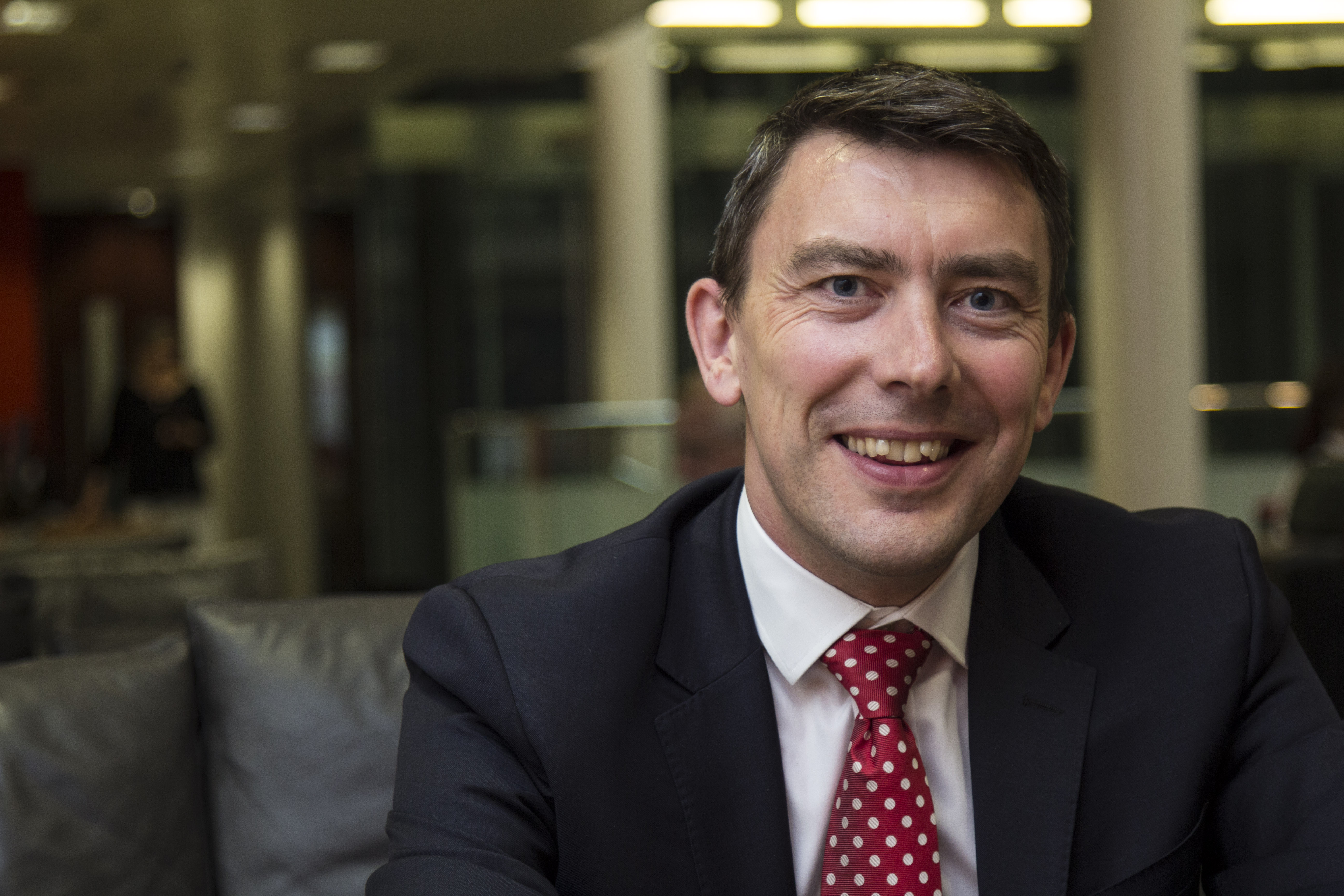 Russell Goodenough manages Fujitsu’s relationship with both Public and Private Sector transport customers, including the Department for Transport and its agencies, Transport for London, London Heathrow Airport, and the UK’s Train Operating Companies. Fujitsu’s technology supports some of the construction projects in the sector including both Crossrail and HS2.
Russell Goodenough manages Fujitsu’s relationship with both Public and Private Sector transport customers, including the Department for Transport and its agencies, Transport for London, London Heathrow Airport, and the UK’s Train Operating Companies. Fujitsu’s technology supports some of the construction projects in the sector including both Crossrail and HS2.
Russell is responsible for Fujitsu’s transport sector strategy, which adopts Fujitsu’s principle of human-centric innovation. This includes the development of next-generation Intelligent Transport Systems, an area that focuses on the customer experience and encompasses Fujitsu’s smart ticketing innovations.
His career at Fujitsu has evolved through a number of programme management roles across Transport, Central Government, Healthcare and Defence. Prior to joining Fujitsu, Russell spent 15 years in the defence industry as engineer and project manager with both BAE Systems and Marconi across a range of major projects.
Session: "Rethinking Technology for Critical National Infrastructure Programmes"
Fujitsu supports the delivery of major critical national programmes across the globe, providing the systems, software and networks that help your teams collaborate and deliver. This session will explore the pace of technology change and how new programmes can make the most of new technology to accelerate delivery.
 Sarah Coleman FAPM CMgr FCMI, Director, Business Evolution
Sarah Coleman FAPM CMgr FCMI, Director, Business Evolution
Sarah Coleman has over 25 years’ experience as a project, programme and change professional shaping, designing and delivering strategic initiatives across professional services, private sectors and government in the UK and internationally. She started her career in Information and Communications Technology and now works with a portfolio of clients including corporates, charities and UK government departments. Her work focuses on improving the performance of projects, programmes and change in organizations to support organizational growth, strategic programmes and enterprise transformation.
Sarah is a Fellow and former Non-Executive Director of the Association for Project Management, and a Chartered Fellow of the Chartered Management Institute. Her first degree was in Anthropology hence her fascination for organizational, project and programme culture. She holds an MBA from Cranfield School of Management, and is Visiting Fellow at Cranfield University and Lincoln University. She is a published author (Organizational Change Explained, Kogan Page 2017; Project Leadership, Gower 2015; Dealing with Power and Politics in Business Analysis and Leadership, Kogan Page 2013), blogger, guest lecturer and conference speaker on all things project, programme and change.
Sarah also coaches, mentors and develops project, programme and change professionals. She can be contacted at sarah.coleman@businessevolution.co
Session title: "Multicultural working"
We increasingly work in complex programmes typically needing to create highly collaborative environments across virtual delivery teams, extended supply chains and non-UK based clients and needing to accommodate ways of working which differ from our own. So how can we make sense of geographically dispersed and culturally diverse programme teams?
Sarah Coleman will lead a highly participative workshop to help make sense of your experiences and insights into working with different cultures both home and abroad.
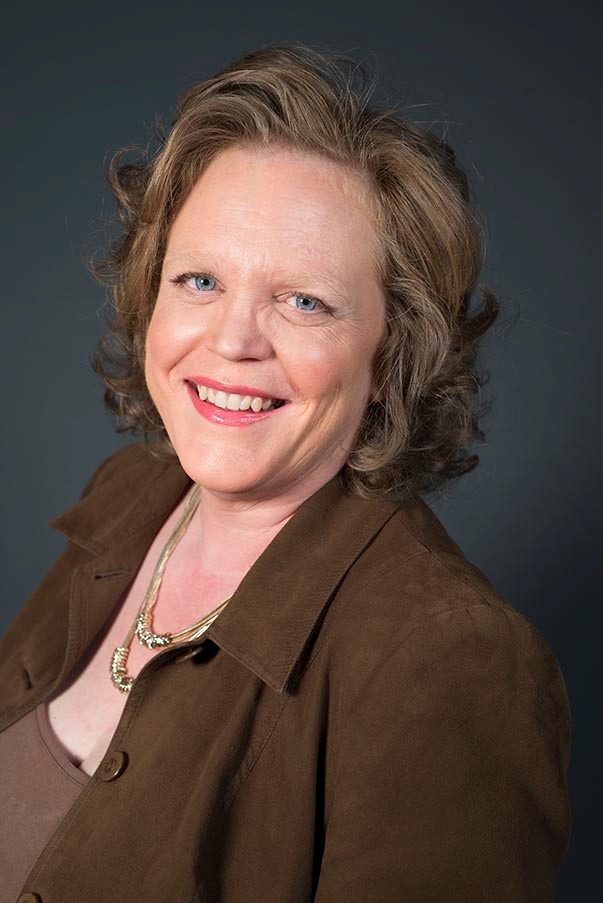 Penny Pullan, Director, Making Projects Work (UK)
Penny Pullan, Director, Making Projects Work (UK)
Dr. Penny Pullan’s latest book is 'Virtual Leadership: Practical strategies for getting the most out of virtual teams and virtual work'. Writing it involved immersing herself in the virtual world and listening to countless stories of success and, all too often, muddling through!
Penny works with people in multinational organizations who are grappling with tricky projects and programmes: uncertain, with ambiguous requirements, stakeholders who need to be engaged and teams dispersed around the world. When they work with Penny, clients notice that communication, collaboration, and confidence grow and programmes don’t seem quite as tricky as before!
Penny tweets at @pennypullan.
Session title: "Virtual Leadership: Practical Strategies for Getting the Best out of Virtual Work and Virtual Teams"
How can we present ourselves authentically as virtual leaders? How can we show up wholeheartedly for meetings so that our virtual colleagues leave them with a smile (yes really)? When so many of us work far away from stakeholders, whether colleagues, suppliers or clients, how do we form strong connections and communicate deeply when we only meet on conference calls or Webex sessions? In our fast paced programmes, where multi-tasking is the norm, how do we engage people when they are likely to be distracted and pulled away by everything else that is happening around them?
While this session will be lots of fun, Penny is deadly serious. Without leadership and engagement, programme managers might as well go home. Tricky projects and programmes need far more than processes. You can expect a very interactive, facilitative session so please come with your own experience, challenges and stories to share. You can expect Penny to touch on: leadership, mind-set, identity, facilitation, risk, change, culture, and lots more. She’s likely to draw live graphics and even invite you to join in a simulation of virtual work! Her hope is that you’ll leave reinvigorated to tackle your tricky programmes and
engage your virtual stakeholders.
Tony Calthorpe, Senior Consultant, The Nichols Group
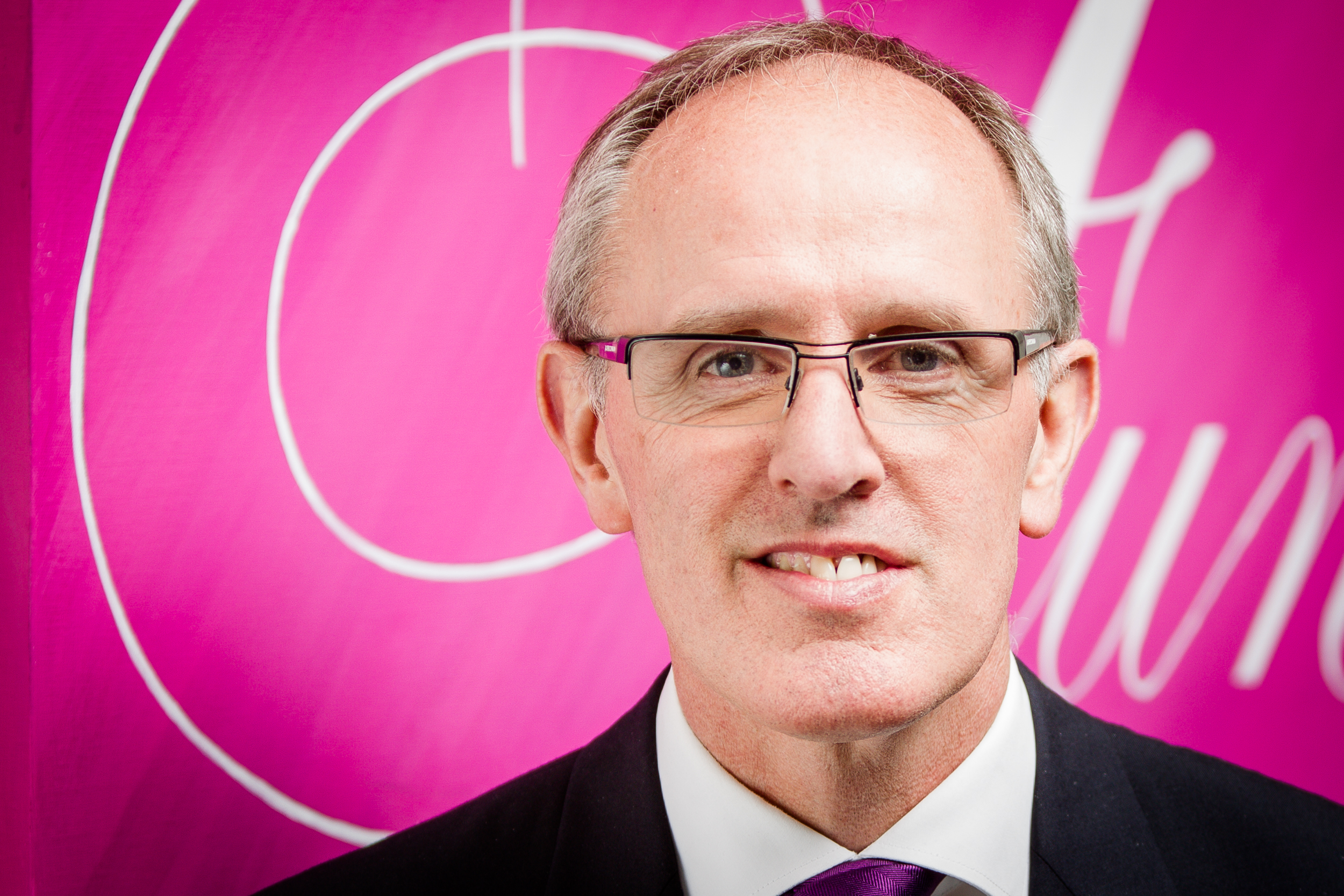 Tony is a senior Nichols staff member with 30 years of experience leading projects and programmes and enabling investors to achieve great outcomes in the transport, health, education and finance sectors. He brings creativity, clarity, rigour and positive drive to the definition, planning and delivery of programmes and is respected for building clients’ own capability to succeed.
Tony is a senior Nichols staff member with 30 years of experience leading projects and programmes and enabling investors to achieve great outcomes in the transport, health, education and finance sectors. He brings creativity, clarity, rigour and positive drive to the definition, planning and delivery of programmes and is respected for building clients’ own capability to succeed.
Most recently he led TfL’s sponsorship of the £4.5bn Brent Cross Cricklewood Regeneration programme, overseeing the developer’s delivery of £300m of enhancements to London’s arterial road network, a factor of 10 bigger than any previous developer-led project for Surface Transport. Through his leadership, according to TfL, “the project was removed from the top of Surface’s worry list and now falls below the radar.”
On Crossrail he managed the structuring, negotiation and completion of the suite of funding, delivery and 3rd party agreements that have very successfully underpinned the project.
His prior roles for TfL include a Strategic Review of London Underground’s ability to deliver capital programmes, and leading the change programmes to instil commerciality, efficiency and control across the enterprise.
In prior engagements, Tony managed the PFI that established the Oyster card and revenue management for TfL – a highly successful programme for private and public sector alike. He has delivered infrastructure, rolling stock, systems integration on a variety of schemes in London Underground and Network Rail.
He helps participants to understand their investment objectives, opportunities, risks and constraints and establishes the appropriate organisation, governance, commercial framework, management and assurance processes. His commercial acumen drawn from his background as a contractor enables him to see issues from both sides and broker the best value solutions.
Session title: "Public and private sector collaboration"
Tony Calthorpe will lead an interactive workshop to explore how the public and private sectors work together and win great value from their investment in and around infrastructure.
You’ll play a role that may be unfamiliar, share what you’re looking to achieve from a case-study project, the risks you feel, the roles you play and the capability you need to win your desired outcomes. Collaborative relationships might just help. But what does that really mean?
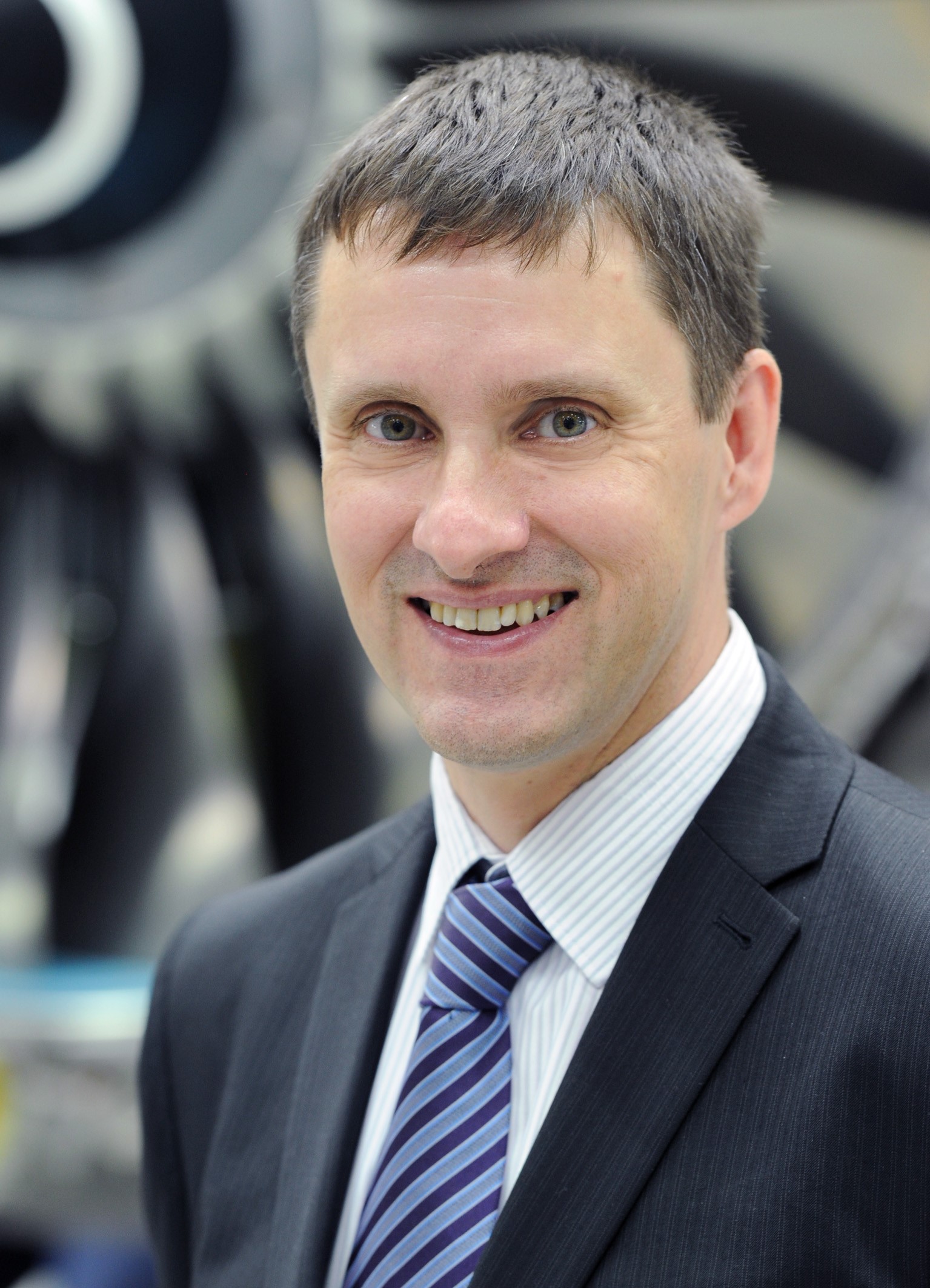 Christopher Young, Director, Programmes, Civil Aerospace, Rolls-Royce
Christopher Young, Director, Programmes, Civil Aerospace, Rolls-Royce
Chris joined Rolls-Royce in 1987 as an undergraduate trainee and was educated at Southampton University, graduating in Mechanical Engineering in 1991. More recently he has completed an Executive MBA at London Business School gaining a distinction when graduating in 2006. In 2014 he was awarded the Royal Academy of Engineering Silver Medal to recognise an outstanding personal contribution to engineering.
His current role is Director, Programmes for Civil Aerospace with key accountabilities for P&L ownership for the sector along with all new product introduction activities. Prior to that he was President of the Civil Small and Medium Engines Business and Chairman of the Board of Rolls-Royce Deutschland. He spent a 6 month period prior to this leading the integration activities of Rolls-Royce Power Systems following the acquisition. Until 2014 he was Director of the Trent XWB programme, having previously been the Chief Engineer since the inception of the programme in 2006. Previous positions include Programme Executive and Chief Engineer – Airbus New Programmes, Business Development Director for the Energy Sector and prior to that a series of posts in Engineering for large civil and business jet engines in Derby and Berlin.
He has been Chairman of the European Association of Industrial Gas Turbine Manufacturers and has sat on a number of government advisory panels including the Advisory Council for carbon abatement technologies.
Session title: "The world’s most efficient aero engine: from inception to delivery"
With £10’s of billions of firm orders received prior to completing the design of the product, Chris Young covers the story of the XWB programme from its inception to delivery of the world’s most efficient aero engine. The talk covers how to manage large scale programmes with high technical complexity by investing in technology, utilising the benefits of virtual analysis, and providing a structure that retires risk at the earliest possible opportunity.
The XWB, like any other Rolls-Royce programme, is also an ideal example of a programme with high organisational complexity that which integrates engineering and testing globally with numerous suppliers and risk & revenue sharing partners, therefore providing insight into the approach in managing large scale engineering and financial risks. Chris uses this single programme in context of the Rolls-Royce Civil Aerospace Programme portfolio, which spans a dozen of similar engine programmes, each at various stages of the product lifecycle.
 Simon D'Cruz, Head of Projects and Systems, Stanway Consulting
Simon D'Cruz, Head of Projects and Systems, Stanway Consulting
Simon D’Cruz is a Chartered Engineer and with over 20 years’ experience in major railway projects; from feasibility, through to approval and acceptance, with specific expertise in signalling and train control systems.
Simon has been working overseas in Asia and the Middle East, and has managed a variety of projects, whether it be as a client, a consultant, or the contractor. Having managed projects in several emerging markets, Simon has experience of delivery in difficult environments where cultural awareness is an essential skill, where stakeholders can be technically unaware and change is constant.
Simon has recently led the technical delivery of the Rail Systems for Etihad Rail in the United Arab Emirates. This landmark project was the first railway in the U.A.E., and the first to deliver the European Rail Traffic Management Systems in the G.C.C. region. This fast track project delivered an operational railway within four years, and was achieved through harnessing both strong project management expertise and system engineering techniques. Simon is a champion for utilising progressive assurance techniques to manage complex railway system projects.
Simon is now the Head of Projects & Rail Systems for Stanway Consulting in the U.K., managing a portfolio of projects, including rail systems, infrastructure, and operation planning. Stanway Consulting are committed to the advancement of new technologies in the rail industry, and are prominent in the delivery of Digital Rail projects, providing technical expertise and consultancy to various clients.
Session title: "Progressive Assurance: Using system engineering tools and techniques to support project managers"
This presentation will set out an approach that enables project managers to employ system engineering tools to manage the maturity of the design and provide confidence in the compliance to stakeholder’s requirements.
The presentation will demonstrate that Project Management and System Engineering processes can be aligned. Focus will be given to the System Engineering techniques and how this can be employed to help manage a project. Furthermore, the presentation will outline how web-based tools can provide real-time visibility to the requirements management, assurance and delivery of a
project.
The presentation will give the audience an appreciation of where system engineering and project management can converge to provide a different approach to the delivery of complex safety critical engineering projects.
Femi Fadipe, Technical Director (International), Project & Commercial Services, 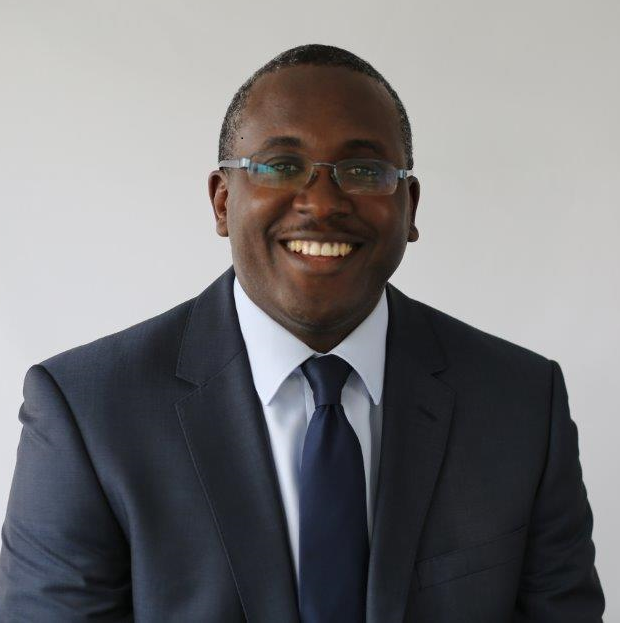 WSP|Parsons Brinckerhoff
WSP|Parsons Brinckerhoff
Femi is a Chartered Civil Engineer with 17 years’ experience leading and delivering complex infrastructure engineering projects in the water and transportation sectors for public and private sector clients. He has successfully delivered projects in UK, Ascension Island, Nigeria, Sierra Leone, Liberia, Belize, Ethiopia, Rwanda, Cote d’Ivoire and parts of Europe.
Femi has extensive experience of working with public sector clients, utilities and donor funding agencies on major international projects, including the Caribbean Development Bank, African Development Bank, European Development Fund, World Bank and DFID. He has also worked with private clients on various project finance projects as Lenders Technical Advisers and Transaction Advisers. In his current role as Technical/Business Director at WSP|Parson Brinckerhoff , Femi is part of an international team within the Project & Commercial Services business responsible for business development and delivery in sub-Saharan Africa for the UK business in various industry sectors.
Femi’s previous role at Roughton International involved taking responsibility for West Africa region’s Business Development, growth, marketing and financial reporting in the road, rail, water and PPP sectors. Prior to his time at Roughton International, Femi worked for almost ten years at Atkins Global in various project management and development roles. He is member of APM, Institution of Civil Engineers (ICE) and Fellow at the Chartered Management Institute (CMI).
Session title: "Challenges of delivering a major infrastructure project in Africa".
Challenges and risks will always exist whilst working on any project anywhere; however, on international projects the challenges are greater. Understanding the dynamics of the industry, country processes, cultural diversification and of course, use of proven management tools is what creates successful project delivery.
Femi’s presentation will highlight the key challenges facing infrastructure development in Africa and a case study delivering a major railway rehabilitation programme in Nigeria using some principles of programme management.
Darren Colderwood, Delivery Director - T2, T3, T4 and T5 Projects, Heathrow Airport 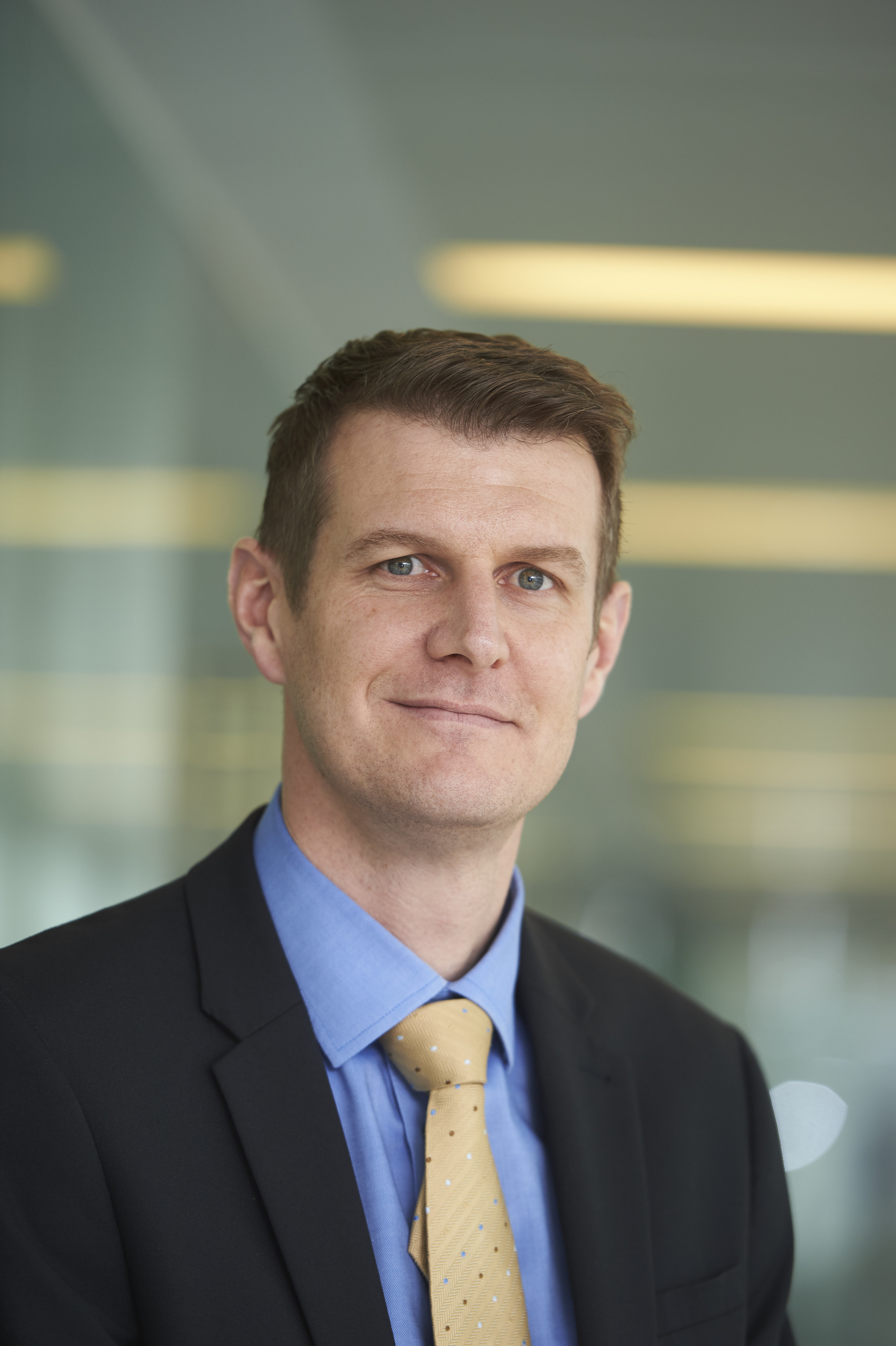 Limited
Limited
An experienced client-side Project and Programme Director with over 15-years’ experience in leading large projects, programmes and product launches in different sectors.
Darren has delivered a number of large-scale projects in different organisations, including automotive design and airports. The most recent projects include a £500m baggage facility in Heathrow’s Terminal 3 and a series of other major capital projects for the airport. He also enjoys developing strategies for procurement and solving technical problems.
Darren is now leading a portfolio of multi-disciplinary projects across all Terminals while leading a large integrated team and continuing with the delivery of complex projects in a challenging environment.
Session title: "Heathrow, Terminal 3 Integrated Baggage Programme (T3IB)"
Terminal 3 Integrated Baggage Programme is a unique example of where technology, systems, people and process come together to create a world class facility in the heart of an operational airport.
This presentation will showcase how a collaborative programmatic approach was used to deliver a complex collection of projects in a challenging environment. It was recognised during the delivery phase that a re-think was required in terms of management, strategy and approach and so the bold step was taken to re-invigorate and restructure the programme to ensure success.
Darren will explore the challenges, opportunities and learning that they experienced through delivery of this business critical programme.
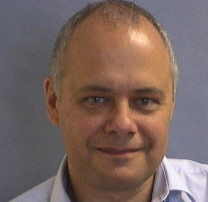 Adrian Ellis, Director, Next Generation Submarines, Rolls-Royce
Adrian Ellis, Director, Next Generation Submarines, Rolls-Royce
Adrian joined Rolls Royce in 1985 and has focussed his career on programme management and engineering roles - starting in the submarines business and eventually becoming the Project Director and Chief Engineer for a contract to undertake the Refit of the land based prototype reactor.
In April 2001 he moved from the submarines business to be the Head of Business Management for the E&T function across the Marine sector, leading the global engineering management of the R&D portfolio, improvement programmes and the E&T functional HR. During this period Adrian was part of the cross functional team that launched a focus on product quality across the sector.
In 2005 he transferred to the Civil Aerospace sector to be the Trent 500 Assistant Chief Engineer during the early service period. He was also involved in the Trent XWB planning the test programme for the latest engine programme.
At the end of 2007 Adrian returned to submarines to become the director for next generation programmes, focussing on the programme to deliver the new PWR3 propulsion plant for the next generation of UK nuclear deterrent submarines due to enter service in 2028. He now runs all programmes associated with UK submarine reactor design and build at Rolls-Royce.
Alasdair G Stirling CBE, Head of Future Submarines, Ministry of Defence (MoD)
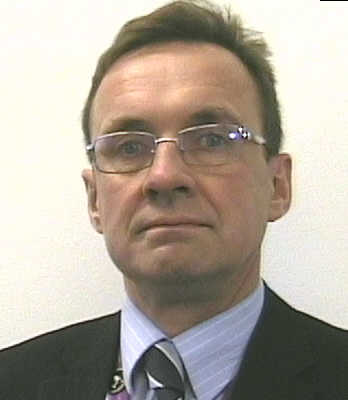 Alasdair Stirling joined the Ministry of Defence (Royal Corps of Naval Constructors) with a First Class Honours Degree in Naval Architecture from the University of Glasgow and experience in the shipbuilding industry. After naval training at BRNC Dartmouth and the Royal Naval Engineering College he completed a Masters degree in Naval Architecture at University College London and the post graduate submarine design course.
Alasdair Stirling joined the Ministry of Defence (Royal Corps of Naval Constructors) with a First Class Honours Degree in Naval Architecture from the University of Glasgow and experience in the shipbuilding industry. After naval training at BRNC Dartmouth and the Royal Naval Engineering College he completed a Masters degree in Naval Architecture at University College London and the post graduate submarine design course.
After training at sea on Royal Navy ships and submarines his first appointment was in surface ship structures. His subsequent career has had a submarine theme but he has completed appointments on exchange with the Canadian Department of National Defence, overseeing T23 frigate construction at Yarrow Shipbuilders, leading the Defence Standardization team which included work with NATO and the European Commission.
His submarine appointments started in the late 1980s with the concept design of SSN20 which evolved into the Astute Class. He spent 3.5 exciting years as the Base Constructor at Faslane where he was responsible for submarine maintenance and repair as well as the safe operation of the shiplift, floating dock and jetties. In 2002 he was appointed as the MOD Astute Class Project Manager just before the contractual difficulties became apparent. He was involved in resetting the design and build contract and led the project until the launch of HMS ASTUTE in 2007 when he was appointed as Director In Service Submarines. In this appointment he was the MOD duty holder with responsibility for the safety and availability of all UK nuclear submarines and the NATO Submarine Rescue Service. This included managing all repairs including nuclear refuel projects as well as the submarine dismantling project.
After 5 years he enjoyed a short exchange with the Commonwealth of Australia supporting the Collins Class program. In January 2013 he was appointed as Head of the Future Submarine Programme with responsibility for the Successor submarine’s design and programme management.
A member of the Senior Civil Service Alasdair is a Fellow of the Royal Institution of Naval Architects, a Chartered Engineer, Registered Project Professional and Certified Projects Director. Alasdair obtained a Master of Science degree with Distinction in Major Programme Management from the University of Oxford in 2016.
Session title: "Building the Dreadnaught (£41bn - formally Successor - submarine class)"

Adrian Furner, IACCM Fellow & Managing Director, Kommercialize
Adrian Furner has over 25 years’ experience in the design, implementation, and delivery of complex commercial transactions through novel business models. He has worked in a variety of sectors including defence and security, aviation, technology and is Managing Director of Kommercialize.
Kommercialize is a practitioner led organisation focused on ‘Commercial Excellence’, supporting organisations in developing and leveraging their ‘commercial acumen’ to gain better business outcomes. This includes: raising their commercial awareness; designing and implementing innovation models; and deploying relational contracting to enhance business performance.
Prior to founding Kommercialize, Adrian held a number of Director level commercial, procurement, and operations roles within BAE Systems, giving him significant experience including: multi-billion £, long term Private Finance Initiative (PFI) bids; joint venture creation and management; outsourced training management; portfolio management; asset financing; civil aircraft sale, leasing and broking; and fully financed naval ship reactivations.
Adrian is a member of the Institute of Engineering and Technology (IET), and an Honorary Fellow of the International Association for Contract and Commercial Management (IACCM), where he is a former member elected Board Director.
Contact: adrian.furner@kommercialize.com
Session title: "What would you do with 9.2% of the value of your project?"
IACCM research shows that an average organisation leaks about 9.2% of turnover through poor contract management. With the increasingly global nature of projects we will look at how collaboration can be used to reduce the leakage and drive up business performance.

Mark Prockter, Director of Programme Management, Rolls-Royce
Mark has been with Rolls-Royce plc for over 31 years, he started his career with Rolls-Royce as a sponsored undergraduate completing a Mechanical Engineering degree at Brunel University. During his early career Mark worked within the Civil Aerospace sector in product development and service engineering roles which lead ultimately to becoming Chief Engineer for the RB211 series of engines. Since then Mark has worked in a variety of programme management and strategy roles within the product development and operations arenas.
His most recent roles have been in supply chain working on strategies for the design, manufacturing processes and supply of component parts.
In August of last year Mark took over the role of Director of Programme Management, where he is accountable for the programme management function across Rolls-Royce globally.
